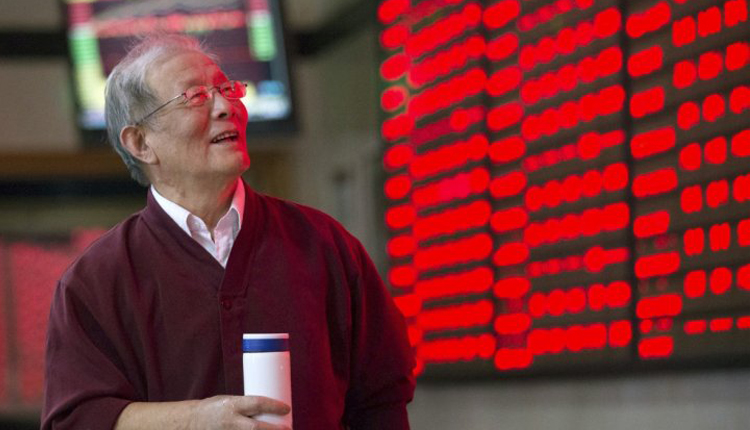Asian markets traded higher Wednesday morning as investors look for concrete developments on U.S.-China trade as the threat of increased tariffs looms.
Mainland Chinese stocks recovered from an earlier slip to rise by the afternoon, with the Shanghai composite up 0.16 percent and the Shenzhen component fractionally higher. The Shenzhen composite also rose 0.126 percent.
The moves came after an earlier data release by China’s National Bureau of Statistics showed industrial profits declining 9.9 percent year-on-year in October.
Hong Kong’s Hang Seng index was fractionally higher. Hong Kong-listed shares of Chinese tech juggernaut Alibaba continued their upward trek as they gained 3.09 percent following a blockbuster debut on Tuesday.
Elsewhere, the Nikkei 225 in Japan rose 0.46 percent in afternoon trade, while the Topix index gained 0.44 percent. South Korea’s Kospi also advanced 0.44 percent.
Meanwhile, shares in Australia traded higher, with the S&P/ASX 200 up about 0.8 percent.
The broader MSCI Asia ex-Japan index traded 0.31 percent higher.
US-China trade watch
Investors continue to watch for updates on U.S.-China trade talks. Leading negotiators from Washington and Beijing held another phone call on Tuesday morning to discuss how to “resolve core issues,” China’s Ministry of Commerce said.
That was bolstered by comments from U.S. President Donald Trump, who also said Tuesday that Washington and Beijing are in the “final throes” of reaching a trade deal.
“I do think that the trade deal is increasingly likely given … President Trump’s comments,” Tai Hui, chief Asia market strategist at J.P. Morgan Asset Management, told CNBC’s “Squawk Box” on Wednesday.
“Both sides have incentives to push through at least this phase one,” Hui said. “I think going forward to phase two, phase three, that’ll be increasingly difficult but given where we are in the macro cycle, I do think that even the U.S. they’d have strong incentive to at least not escalate this tension further.”
Still, an anticipated “phase one” trade deal between the two economic powerhouses has remained elusive ahead of December 15, when additional tariffs on Chinese exports to the U.S. are set to kick in.
Robert Carnell, chief economist and head of research for Asia Pacific at ING, wrote in a note that markets “seem to be getting enured” to comments such as those from Trump.
“The fact that we have heard these positive comments so often but are still waiting for a deal could be interpreted as meaning that significant problems still remain,” Carnell said. “This may be more than just dotting the ‘i’s’ and crossing the ‘t’s.’”
Overnight on Wall Street, stocks hit another record. The Dow Jones Industrial Average advanced 55.14 points to close at 28,121.68 while the S&P 500 finished its trading day 0.2 percent higher at 3,140.50. The Nasdaq Composite also added nearly 0.2 percent to close at 8,647.93.
Currencies and oil
The U.S. dollar index, which tracks the greenback against a basket of its peers, was at 98.313 after seeing an earlier low below 98.3.
The Japanese yen traded at 109.09 against the dollar after weakening from levels around 108.9 yesterday. The Australian dollar changed hands at $0.678 after seeing an earlier low of $0.6777.
Oil prices slipped in the afternoon of Asian trading hours, with international benchmark Brent crude futures down 0.25 percent to $64.11 per barrel. U.S. crude futures also declined 0.29 percent to $58.24 per barrel.
Source: CNBC


